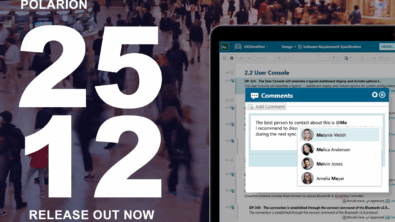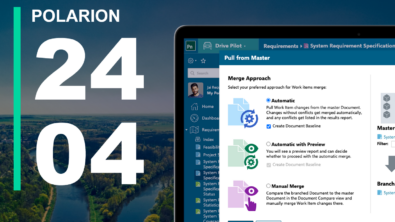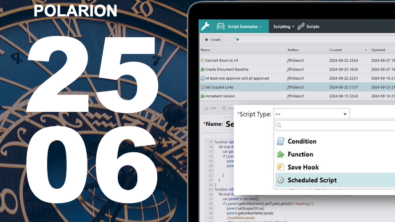Products
Morris Medical Monday: Polarion MedPack Work Item Workflows (Part 1 of 3)
Welcome back to Morris Medical Monday: a weekly series for medical device development companies (and companies who are related to such companies), providing some useful information about Polarion sol...
Welcome back to Morris Medical Monday: a weekly series for medical device development companies (and companies who are related to such companies), providing some useful information about Polarion solutions and Polarion extensions.
Today we will continue on the subject of Polarion’s MedPack extension, and have a look into MedPack’s Work Item Workflows.
Work Item Workflows
This page explains the workflow concept of the MedPack Work Items. The workflow is strongly connected to the role concept, which is described on the MedPack Role Concept wiki page.
Basic Rules
As reviews play an important role within regulated software development, this activity has to be represented in the workflow of any work item. IEC requires both verification and evaluation of deliverables and distinguishes these activities as follows:
Evaluation: A systematic determination of the extent to which an entity meets its specified criteria (IEC 62304:2006 clause 3.7).
Verification: Confirmation through provision of objective evidence that specified requirements have been fulfilled (IEC 62304:2006 clause 3.33).
In fact, every deliverable must be either be verified or evaluated, so either verification or evaluation is the final step before a work item can be closed.
Generic Workflow
A simplified, straightforward workflow which covers all possible steps in the lifecycle of a work item is shown below.
Workflow Phases
A generic workflow consists of the phases described below.
Creation
If a deliverable or work item has to be created by the manufacturer and is not an external input, the first step of the lifecycle is the creation. Creation can be as simple as just writing down a requirement or as complex as designing a complete architecture. Therefore, it must be represented by a status with a flexible timeframe and not as a distinct point of time. However, not every work item needs a creation phase – every work item that represents external data is created before it is added to the system, so there is no creation “phase”.
Verification
According to IEC 62304, verification means confirmation through provision of objective evidence that specified requirements have been fulfilled. So, for an item to be verified, it must be possible to specify requirements and it must be necessary that those requirements are completely met. This is only true for planned items, so verification is always done for items created in a creation phase, i.e. the verification phase neccesarily needs a creation phase.
Execution
Some items not only need to be planned and verified, but also need to be executed. Any kind of tests are an example. As execution can also be a time consuming activity, it is also represented by a phase.
Evaluation
According to IEC 62304, evaluation is a systematic determination of the extent to which an entity meets its specified criteria. Following this definition, verification is a kind of evaluation, but evaluation in general does not require the specification to be completely met. Therefore, also unplanned things like feedback or problem reports – in general everything coming “from outside” of a defined process -, can be evaluated. Evaluation then is a way to check whether or to what extend the information is usable. IEC 62304 uses the term “evaluation” for all things representing external, unplanned or even unwanted information, which, however, has to be considered.
Workflow Steps for MedPack Work Items
According to the definitions given above, it can be identified, which work items need to pass which workflow phases. The following table gives an overview.
Click on image to enlarge
For more information about Polarion’s MedPack visit our Extension Portal using following link:
http://extensions.polarion.com/extensions/31-polarion-alm-medpack-iec-62304I hope you liked this article and you will visit our Blog again when there is another Morris Medical Monday article.




